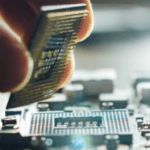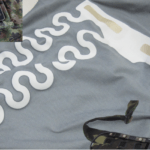Monsieur le Président du Conseil Européen [Charles Michel], Madame la Présidente du Parlement Européen [Roberta Metsola], Madame la Présidente de la Commission [Ursula von der Leyen], Président [de l’Ukraine, Volodymyr] Zelenskyy, Président du Parlement ukrainien [Ruslan Stefanchuk],
Dear members of the European Parliament,
I will try to share with you my thoughts on the meaning of the tragic events that we are living and the provisional lessons that we can draw from them, especially for the Common Security and Defence Policy, which I had the honour to try to develop and it remains an intergovernmental policy. A policy which is still in the hands of the Member States but cannot be implemented efficiently without the strong cooperation of the Commission competences. I think this is the moment in which the geopolitical Europe is being born.
Ça, c’est l’acte de naissance de l’Europe géopolitique. Le moment où nous prenons conscience du défi auquel nous faisons face. Le moment auquel l’Europe doit faire face à ses responsabilités. Le moment où nous prenons conscience que, pour la première fois depuis la fin de la Seconde guerre mondiale, un pays envahi un autre et ce pays possède l’arme nucléaire, ce qui augmente sa capacité d’intimidation. Cela me rend malade que de penser à l’analogie historique avec les évènements du début de la deuxième guerre mondiale.
But, it is really the return of tragedy, to which Europe is being confronted today. The return of tragedy, far from frightening us, should galvanise us.
First, it releases the idea that the European project had lost its momentum because the horizon of the war has been faded. Unfortunately, not. This reminds us that the evil, the tragedy and the war never fade away. And it’s about the relationship with war, with use of force, with violence, on which we have been debating for years, to find out whether Europe can counter it. This is why in recent years we have talked more about defence issues than in the past and we have begun to set up joint military programmes. That’s why the European Parliament itself has voted to set this European Defence Fund, and the Member states have created this European Peace Facility that now we are mobilising in order to provide arms to Ukraine.
The European Council, in the next weeks, will adopt the Strategic Compass. And with the invasion of Ukraine by Russia, we must amplify our reflexion, adjust our means and anticipate our responses. Because one of the lessons that we had to learn from the invasion of Ukraine is that more than ever, Europe must think strategically about itself, its environment, and the world. It is no longer a luxury, it’s a necessity. Europe must amplify its reflexion on security issues and the European Parliament has had an important role to play in this regard. We need to think about the instrument of coercion, retaliation and counter-attack in the face of reckless adversaries because all we need to understand is that to make peace, we need to be two, but to make war, it is enough to be one. This is exactly what Putin is telling us. And that’s why we have to increase a lot our deterrence capacity. We’ll need to increase our deterrence capacity in order to prevent war. And it’s clear that our deterrence has not been strong enough to stop Putin’s aggression. And since this aggression has started, we have reacted in the last few days in a way that Putin didn’t expect. And we are showing him that we will never sacrifice our freedom, and the freedom of others, on the altar of our wellbeing and prosperity.
Being President of this Parliament in 2007, I had the opportunity to tell Putin, eye to eye, in the aftermath of the killing of a journalist, Anna Politkovskaya, I told him: “We are not going to change human rights because of your acts”. And this is the moment to repeat, and to act on that. We will not share, we will not abandon the defence of human rights and freedom because we are more or less dependent on Russia. And we have to start working quickly, as the Commission has proposed, in order to cancel this dependency. Last Saturday, after having held another Foreign Affairs Council and attending the debate of the European Union Council, I was talking with you, President Michel, and you told me: “Are we doing everything we can? Is there something more that we can do? Is that enough? Are we so powerless?”. And you told me: “Think, do, act. We have to push Member States to adopt decisions on SWIFT and to take Russia out of the financial system. Think about how we can arm Ukraine. Not country by country, one after all in an uncoordinated manner”. And you encouraged me to talk with Member States again.
In a few hours, we agreed on using this European Peace Facility in order to bring financial support and coordinate Member States on arming the Ukrainian army and people. In less than 24 hours, another taboo had fallen. And the President of the Commission immediately showing a strong leadership and start working in order to get an agreement with our international partners, in order to make possible to switch off Russia from the financial system. And you know what, now half of the reserves of the Central Bank of Russia are completely out of their control, they are frozen. Can you imagine? This is a coercion capacity. Three days ago, it was impossible and now it’s possible. They start feeling the consequences in terms of inflation and the fall of their currency.
Yes, we have capacities. We have mobilised these capacities and we have to continue doing so, putting together the capacities of the Member States and the European Union.
I want to remind you that the European Peace Facility is not part of the budget that you vote. It is another budget. It is an intergovernmental fund, managed by the Member States. Because we claim that we, the European Union, are a peace force and that we cannot provide arms to anyone else. Yes, we can. Yes, we have done it. In the next budget, think about it. When you vote your next budget, use the budgetary capacity of this institution to put the ways and the means in order to face the next crisis and the next Russian aggression.
On est en train de travailler dans le domaine international pour bâtir une coalition pour condamner la Russie aux Nations Unies. Elle [la Russie] n’a pas eu un seul vote en faveur. Tout le monde en faveur [de la résolution] et il y eu quelques abstentions qui sont très significatives.
Ha habido países, tradicionalmente aliados de Rusia, que no han votado a favor suyo, se han abstenido. Y ahora hay que construir una coalición internacional para que en la próxima Asamblea General de las Naciones Unidas sea el mundo entero el que condene al agresor. Nadie puede mirar para otro lado.
Cuando un potente agresor agrede sin justificación alguna a un vecino mucho más débil, nadie puede invocar la resolución pacífica de los conflictos. Nadie puede poner en el mismo pie de igualdad al agredido y al agresor. Y nos acordaremos de aquellos que en este momento solemne no estén a nuestro lado.
Sí, hemos utilizado nuestra capacidad coercitiva, la capacidad de imponer – no necesariamente usando las armas. Cuando digo que Europa tiene que ser un hard power, la gente piensa únicamente en el poder militar. No, el hard power se ejerce de muchas más maneras. La capacidad de condicionar, the coercive capacity, la capacidad de imponer al otro otra conducta no se hace solamente con las armas. Se hace como ha propuesto la Comisión [europea] de una manera extraordinariamente eficaz, gracias señora presidenta [Ursula von der Leyen] y como usted ha impulsado en los debates del Consejo Europeo, gracias señor presidente [Charles Michel].
Tomar medidas como esta, que parecen de papel, que desde luego no mobilizan misiles, pero que tienen un efecto trascendental sobre la solvencia de un país e impiden que Rusia vaya a gastar el dinero que pagamos por su gas para alimentar la guerra.
Esto es, creo, señoras y señores diputados, la lección más importante que tenemos que extraer de estas trágicas circunstancias. No podemos seguir confiando en que apelar al Estado de Derecho y desarrollar relaciones comerciales van a convertir el mundo en un lugar pacífico donde todo el mundo evolucionará hacia la democracia representativa.
Las fuerzas del mal, las fuerzas que pugnan por seguir utilizando la violencia física como una forma de resolver los conflictos, siguen vivos y frente a ellos tenemos que demostrar una capacidad de acción mucho más poderosa, mucho más consistente y mucho más unida que la que hemos sido capaces de hacer hasta ahora.
Hemos hecho mucho y hemos, sin duda, asombrado al mundo y sorprendido a Putin con una capacidad de reacción rápida y unida. Hay que seguir en este camino.
Y este acto, este momento parlamentario donde ustedes con sus aplausos quieren dar ánimos a las instituciones europeas para seguir en el camino que hemos aprendido, puede ser el momento en que los europeos entiendan que el mundo en el que viven es un mundo peligroso y para hacerle frente hace falta que refuercen su Unión.
La pandemia abrió la puerta a acciones innovadoras. La pandemia nos ha impulsado por el camino de unirnos más para hacer frente a los virus. Este momento trágico debe impulsarnos a unirnos más para hacer frente a aquellas acciones humanas que amenazan también la vida, la seguridad y la prosperidad de todos.
Muchas gracias.
Link to the video (starting at 9:30): https://audiovisual.ec.europa.eu/en/video/I-219164
Closing remarks
Señora presidenta, querido colega vicepresidente [de Relaciones Interinstitucionales y Prospectiva, Maroš Šefčovič], señoras y señores diputados,
Rusia se sitúa, después de la agresión a Ucrania, en un punto de inflexión en su etapa post-soviética. Rusia ha puesto fin a uno de los últimos eslabones que quedaban en su relación con la Unión Europea. Ese eslabón eran los acuerdos de Minsk.
El presidente Putin los ha liquidado. Eran acuerdos imperfectos, desde muchos puntos de vista, arrancados en un momento en el que había que hacer un alto al fuego en la anterior guerra. Pero, no obstante, estos acuerdos consagraban la integridad territorial de Ucrania. Y su cumplimiento, hoy ya imposible, marcaba un hipotético camino hacia una normalidad de las relaciones diplomáticas entre Rusia y la Unión Europea. Esta posibilidad ahora ha desaparecido.
Por eso digo que Rusia se encuentra hoy en un punto de inflexión en su trayectoria en la época post-soviética. Y este tremendo conflicto solo puede concluir positivamente con un regreso de Rusia a las normas y a los principios internacionales básicos. Esta es una ocasión que tenemos, desde la Unión Europea, que aprovechar para elaborar mecanismos y tratados que establezcan garantías de seguridad más firmes y mecanismos que permitan verificar su puesta en aplicación.
Quiero recordarles, después del entusiasmo de una sesión parlamentaria, que al final la vía de la negociación y el diálogo están en la esencia de lo que es la Unión Europea. No somos una Unión militar. Y no hemos declarado la guerra a nadie. Somos una Unión de Estados miembros que precisamente ha renunciado a la guerra como forma de resolver los conflictos. No estamos en guerra con nadie, pero estamos al lado de alguien que ha sido agredido, y dispuestos a movilizar todos nuestros recursos diplomáticos a la vez para salvaguardar la seguridad de Europa, pero también para encontrar una solución al conflicto. Porque las sanciones son necesarias, inevitables, pero además de las sanciones, necesitamos soluciones.
Estas sanciones tendrán un efecto muy grande sobre la economía rusa. Y el señor Putin no puede decir que no lo sabía. Porque se lo hemos advertido, tanto la presidenta [de la Comisión Europea] Ursula von der Leyen en multitud de veces, como el presidente del Consejo Europeo [Charles Michel]. ¿Cuántas veces hemos dicho que las sanciones tendrían efectos masivos y altos costes? Sin duda, las van a tener. El rublo se ha desplomado un 40%, el control sobre casi la mitad de las reservas de cambio de Rusia tendrá un efecto enorme sobre su economía. Al lado de esto, sacar del sistema SWIFT a unos cuántos bancos es de menor importancia, porque en este momento las cifras cantan. Rusia se había preparado desde hacía tiempo para hacer frente a una situación como esta y había ido quitando sus reservas del dólar y el euro para colocarlo en yuanes y en oro. Cuando Rusia toma Crimea, el 87% de sus reservas están en dólares y euros. Ahora están entorno al 40%, pero sigue siendo mucho. Porque 135 millones de reserva en oro… el oro hay que poderlo vender. Y para eso hace falta que alguien lo pueda comprar. Nuestras sanciones financieras van también a impedir la movilización de estos recursos.
Therefore, these unprecedented financial measures will go in the direction of a potential default, which will have consequences for the global financial system. Do not underestimate the importance of what we have decided to do and what will follow – I want to stress that. And now we have to work diplomatically all over the world, reaching out to all countries, in order to build a state of the mind to condemn the aggressor.
And, on that, I can assure you that I, as High Representative, all my colleagues Members of the Foreign Affairs Council, all our Delegations and all our embassies will be strongly working in order to get a result on the vote at the [United Nations] General Assembly. This is the most important thing that we have to do right now. Because – I repeat – this is an issue which belongs to the Foreign and Security Policy, which is intergovernmental, and the Member States are the ones who have to take the lead on this response and on the diplomatic sphere.
The second thing that has been discussed today – and this may be more important that what many of us could believe – is our dependence on gas. The President [of the European Commission, Ursula von der Leyen] has been saying all the time that we have to reduce this dependence. But I have been listening for the last 20 years that we have to decrease this dependence, and this dependence has been increasing during the last 20 years.
So from now on, let’s put our work in accordance with what we say. Because we pay $700 million for the world, for gas, and oil, and coal imports from Russia. And every year, we import 2 billion cubic meters of gas. We have to increase renewables, the President said, have renewed hydrogen. But keep in mind, that the amount of power in a country like Italy, in renewables, is less than half a billion cubic meters per year. We have strong work to do in front of us. We have to remain committed to it. We have to explain to other people what does it mean. This is a good occasion to develop the best, most noble side of the political activity, which is pedagogy. This is the moment to do pedagogy. And I understand the enthusiasm and approach of a Parliamentarian chamber in a moment like this, I have been parliamentarian like you like you for many years, even President of this House. And I know that this is a moment to show enthusiasm and support. But then, we have to go to acts. And next time, when you discuss again the budget of the Union, remember that we need resources to do, what we are doing today with an intergovernmental fund that this Parliament has never approved, because it’s not in their competences.
Put more defence and security in your mindsets, and stop discussing theology about strategic autonomy. Call it the way you want, but we have to be more responsible. We have to take our responsibility more in our hands. We have to be strategically responsible, and this has nothing to do with weakening the transatlantic alliances which, by the way, has improved in a way, that is stronger than ever. And our unity with our transatlantic partners has been 100%, nothing against weakening NATO because we develop our capacities.
We have to become a hard power. I know that the word may afraid someone. But hard power, I insist, is not just talking about military. Hard power is having power to coerce. The power to influence the decision of the others, and what we are doing on these measures, is a lot of hard power. Be prepared for the answer. Be prepared for the consequences. Don’t put all your strength in your mouth. Don’t say nice things only. From now on, we have to be prepared to resist. We have to be prepared to act, in the long term, with a clear understanding of which are our challenges and our capacities. This is the moment for the European Union to discuss about what we want to be. What we are. Which are the limits of what we can do. And what do we want to do in the future. And you know that in order to face the challenges of the future, there is a lot of things that we have to review. A lot of things about our procedures, about our methods, putting more attention on our capacity to act than the time that we spend on internal discussions.
What is happening today in Ukraine, reminds me Budapest, May 1956. I was nine years old, but I remember listening to the radio how the Russians charged when entering Budapest. This reminds me 1988, The Prague Spring. I was an officer in the Spanish army then, and my unit was put into alert. I don’t know why, but it was completely useless. On both cases, we did nothing because we couldn’t do anything. But from now on, we have to face a confrontation between us, democracies – people who believe in freedom, in multi-party systems, where citizens choose their governments, where we live in a free market economy, trying to put together economic efficiency and social cohesion – with autocratic regimes, which are supporting themselves with a “clique” of people who take advantage of the system, while the great majority of the people don’t improve their living conditions. All the war treasury that Putin is taking from gas payments doesn’t go to increase the wellbeing of the Russian people. It goes to make his war machine more powerful. Tout l’argent qu’on paie pour le gaz, le pétrole russe, ne sert pas à améliorer le bien-être du peuple russe, ça sert tout simplement à augmenter sa capacité militaire.
C’est le moment je pense, vraiment, honnêtement, où l’Europe doit réfléchir à ce qu’elle est : Que voulons-nous être dans le futur ? Je pense, un peu plus que ce nous sommes aujourd’hui. Et c’est ça le véritable défi auquel nous devons faire face dans les prochaines semaines, mois et années. Et c’est pour ça, que la Conférence sur le futur de l’Europe peut jouer un rôle important.
Link to the video: https://audiovisual.ec.europa.eu/en/video/I-219168
Más información: Servicio de Acción Exterior de la Unión Europea






Deja una respuesta